US detainees freed by North Korea
- Published
North Korea has detained several US citizens - sometimes holding them for years, the BBC explains.
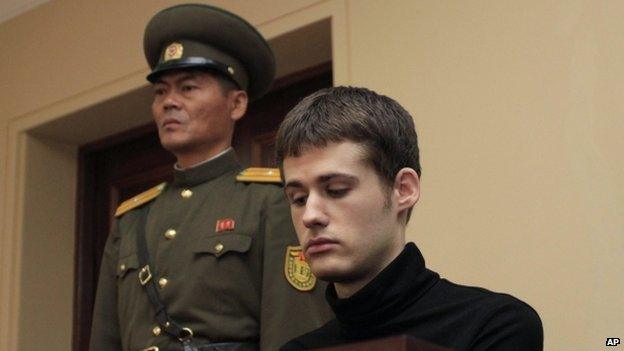
North Korean authorities say Matthew Miller wanted to claim asylum
Matthew Miller: April 2014 - 8 November 2014
Matthew Todd Miller, a 24-year-old US citizen, was sentenced to six years of hard labour on 14 September 2014 for what state media described as "hostile acts" against North Korea.
He had been in custody since 10 April when, according to North Korean sources, he destroyed his tourist visa and demanded asylum.
The youngest of four sons, he grew up in Bakersfield, California, and both his parents were oil engineers.
Described by former classmates as "quiet but extremely intelligent", he learnt Korean on his first trip to South Korea four years ago while visiting a brother stationed there with the US air force. A California neighbour said he liked it so much he stayed.
Notes produced in court, apparently in Mr Miller's handwriting, suggested he had become a fugitive because he was involved with Wikileaks, the organisation that leaked US state secrets.
However, the BBC's Stephen Evans in Seoul says it is unclear if they were written under duress or not, and if any of the allegations were true.
In an interview this month with CNN, attended by North Korean officials, Mr Miller said: "I will say that I prepared to violate the law of the DPRK before coming here."
He also said he deliberately committed his "crime", without specifying what he had done wrong.
The charges he faced in trial were non-specified.
Kenneth Bae: November 2012 - 8 November 2014
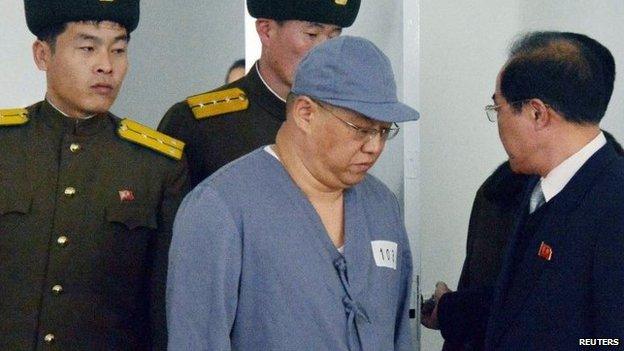
Mr Bae, seen here in Jan 2014, was detained in November 2012 after entering North Korea as a tourist
Mr Bae, a Korean-American known in North Korea as Pae Jun-ho, was arrested in November 2012 as he entered the north-eastern port city of Rason, a special economic zone near North Korea's border with China.
He has been described as both a tour operator and Christian missionary. North Korea said he used his tourism business to form groups to overthrow the government.
He was sentenced to 15 years' hard labour in May 2013.
Mr Bae's trial and conviction came at a time of high tension between the US and North Korea, in the wake of the communist state's third nuclear test. So far efforts to secure his release have been unsuccessful.
His family say he has several health complaints including diabetes and liver problems.
Jeffrey Edward Fowle: June 2014 - October 2014
Jeffrey Fowle entered North Korea on 29 April and was detained as he was leaving the country some time between mid-May and early June, according to reports.
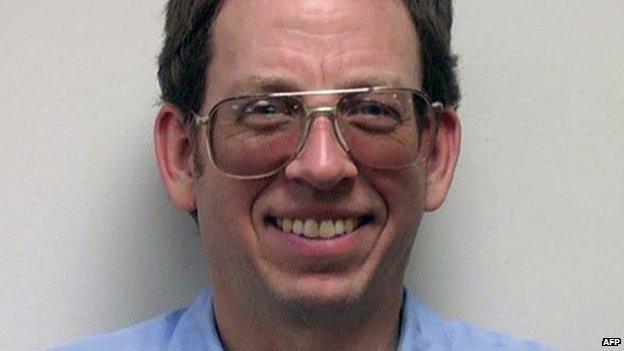
Jeffrey Fowle was facing trial in North Korea before his release
He is a 56-year-old US citizen from Miamisburg, Ohio, who works for the city.
The father of three came into the country as a tourist but, according to reports, left a Bible in his hotel room - something the North considers incendiary.
He was facing a trial for non-specified charges but was released following negotiations and returned to the US in October 2014.
Eddie Jun Yong-su: November 2010 - May 2011
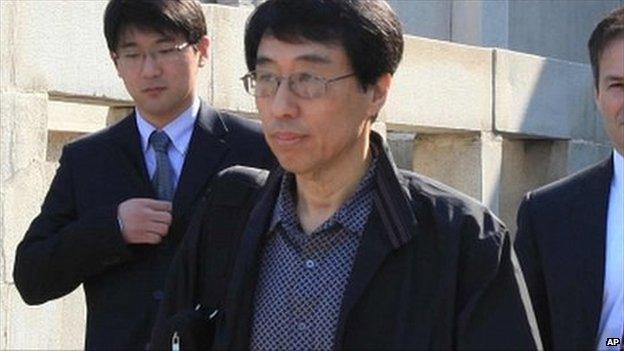
Mr Jun, centre, was released on humanitarian grounds after six months
Mr Jun, a businessman, was arrested in November 2010 for an unspecified "grave crime", and detained in North Korea for six months.
It was reported that he may have been involved in missionary work during business trips to North Korea.
The communist state views organised religious activity as a potential challenge to its leadership.
North Korean state media said that he had confessed to wrongdoing, and that he was treated well in custody, being allowed diplomatic contact and family phone calls.
Visiting US officials repeatedly requested his release, including Robert King, the US special envoy for human rights, who was visiting North Korea to assess its food situation.
During Mr King's visit, the North agreed to free Mr Jun on "humanitarian grounds".
Mr Jun was flown out with Mr King's delegation.
The US had suspended its food aid to North Korea in 2009 amid concerns over the North's nuclear programme, and Mr King stressed that Pyongyang had not been promised aid in return for Mr King's release.
Aijalon Mahli Gomes: April - August 2010
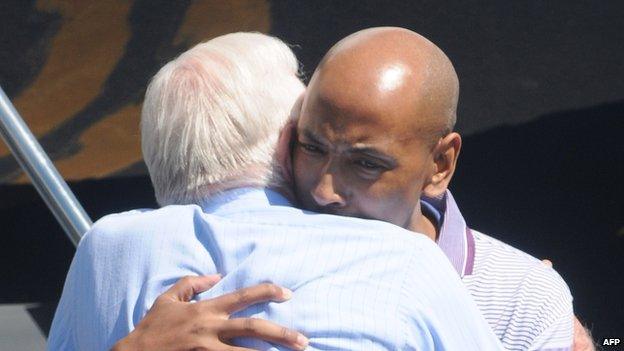
Former US President Jimmy Carter secured the release of Aijalon Mahli Gomes
Aijalon Mahli Gomes, 31, was sentenced to eight years' hard labour for illegally entering North Korea from China in 2010.
He had been teaching English in South Korea, but reportedly crossed into North Korea in January 2010. He was arrested in April that year.
Mr Gomes, a devout Christian, was thought to have gone to North Korea on a one-man peace mission.
North Korean media said he tried to commit suicide while in detention.
Mr Gomes' detention came during a period of heightened tensions on the Korean Peninsula.
In March 2010, South Korea's Cheonan warship sank, killing 46 sailors. International investigators said that the vessel had been sunk by a North Korean torpedo, something Pyongyang denied.
Soon afterwards, the US and South Korea took part in joint military drills, sparking anger from North Korea.
Six-party talks aimed at ending North Korea's nuclear programme had also been stalled for several months.
Former US President Jimmy Carter secured Mr Gomes' release during a "private humanitarian trip" to North Korea in August 2010.
During his trip, he met North Korean officials, including ceremonial head of state Kim Yong-nam.
North Korean media said that Kim Yong-nam expressed North Korea's commitment to resuming six-party negotiations on its nuclear programme, during his talks with Mr Carter.
Robert Park: December 2009 - February 2010
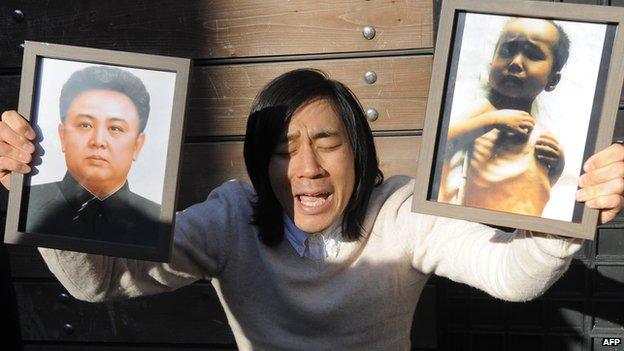
Robert Park has continued to campaign against North Korea since his release
US Christian activist Robert Park entered North Korea on 25 December 2009, carrying a letter for then-North Korean leader Kim Jong-il.
He crossed into North Korea from China by walking over a frozen river. He was arrested almost instantly.
He told the BBC he had decided to make the trip because his conscience had been tormented by the thought of people suffering in North Korea.
He said he was tortured while in custody.
In February, North Korea said it had decided to "forgive and release" Mr Park.
North Korean media said he confessed to crossing the border, and agreed that his view of North Korea was based on false reports.
He now realised that religious freedom was ensured in North Korea, North Korea's main news agency added - something his colleagues described as "propaganda".
Laura Ling and Euna Lee: March - August 2009
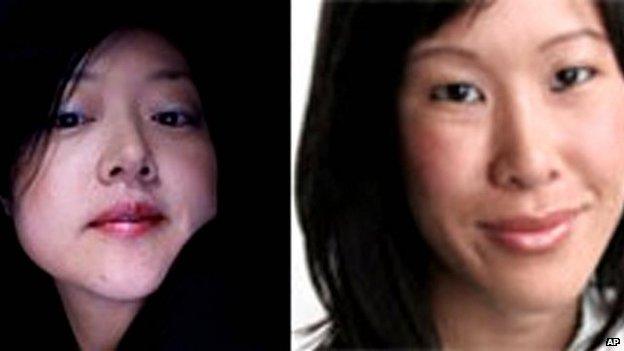
Ms Lee, left, and Ms Ling said they may have been lured into a trap
Laura Ling and Euna Lee, reporters for California-based Current TV, were jailed for illegally entering North Korea and sentenced to 12 years' hard labour.
They had been filming a video about North Korean refugees, and admitted to entering North Korea for a short time, but said they were on the Chinese side of the border when they were arrested.
"We were firmly back inside China when the soldiers apprehended us," they said.
"We tried with all our might to cling to bushes, ground, anything that would keep us on Chinese soil, but we were no match for the determined soldiers."
They said it was possible that they had been lured into a trap.
Their detention took place during a period of high tensions between Pyongyang and Washington. In April, North Korea dropped out of six-party denuclearisation talks, and in May, it said it had successfully completed its second nuclear test.
The two journalists were issued with a special pardon after former US President Bill Clinton visited Pyongyang, and returned to Los Angeles on a chartered flight with Mr Clinton.
Official North Korean reports said that Mr Clinton had apologised on behalf of the US for the actions of the two reporters - something denied by the US, who said Mr Clinton carried no message to North Korea.
Correspondents said that it appeared that the women had been held in relative comfort in a guest house for most of their time in North Korea, and been used by North Korea as a diplomatic tool to secure a visit by a high-profile US envoy.
Bryan Toh also contributed to this article